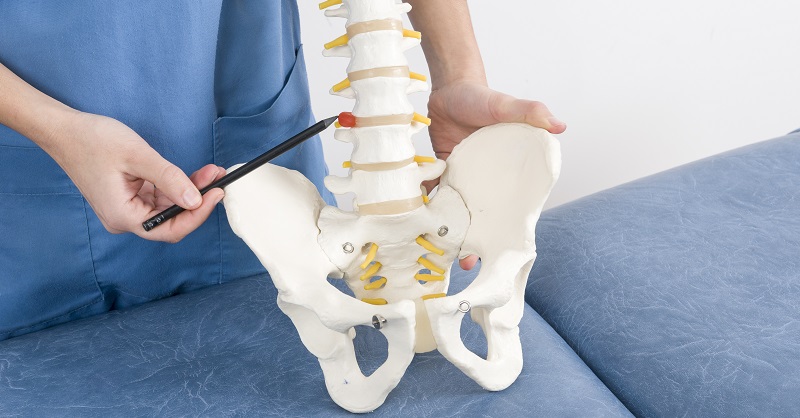What is DISH of the Spine?
Category: Spine | Author: Stefano Sinicropi

As we get older, we have a greater risk of developing certain health conditions. One such condition is DISH, which stands for diffuse idiopathic skeletal hyperstosis, and it’s a condition that often affects the spines of older individuals. Below, we take a closer look at what’s going on if you’ve been diagnosed with DISH, and how a spine specialist can help you treat the condition.
Diffuse Idiopathic Skeletal Hyperstosis
DISH is a condition where the ligaments in your spine begin to harden in the area at which they connect to your spine. It’s caused by a buildup of calcium salts in the ligaments and tendons in the area, as well as hardening and overgrowth of bone. Genetics and aging are believed to play a role in its onset, but a true cause isn’t well known.
In some cases, you may not even know you’re dealing with the condition because symptoms aren’t present, while for others, they may experience minor to mild stiffness in their back. Other symptoms include localized pain, tenderness, inhibited range of motion and difficulty swallowing if the condition occurs in your cervical spine.
Although the symptoms may not seem that serious, like a number of health conditions, symptoms can be progressive if you don’t seek out active treatment. So if you are experiencing any of the above symptoms and you’re over the age of 50, it’s a good idea to head into your doctor or a back specialist’s office.
Diagnosis and Treatment
The diagnosis process is pretty straightforward, as the doctor will look at your medical history, ask about your symptoms and then conduct a physical exam. They may apply light pressure on certain spinal segments to test for stability or range of motion. From there, imaging tests to look for ligament hardening help to confirm a diagnosis.
Although there is no way to reverse the damage from DISH, there are some treatment options to help alleviate symptoms and prevent further progression of the condition. The most common treatment options include a combination of:
- Weight Loss/Weight Management
- Diet Changes
- Physical Therapy
- Regular Exercise
- Improved Diabetes Management (if applicable)
- Anti-inflammatory Medications
Conservative care options often yield great results, but it’s also worth noting that in rare cases where swallowing is impacted by DISH, a minimally invasive surgical operation may be necessary to improve swallowing function.
So if you are experiencing any of the above symptoms, or you have a family history of the condition, please reach out to Dr. Sinicropi to help get a handle on how to best prevent progression and find symptom relief. Contact our office today for more information.